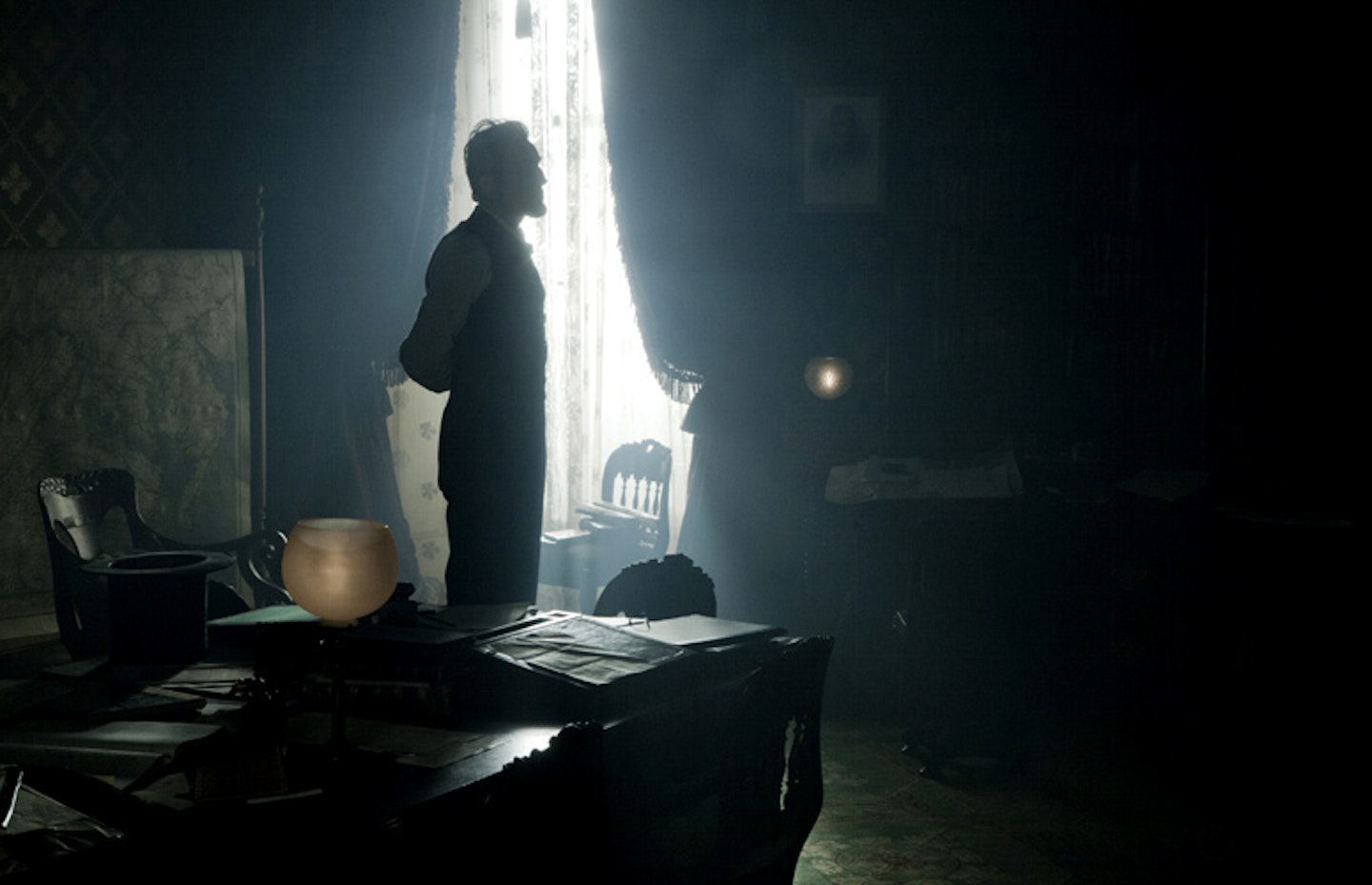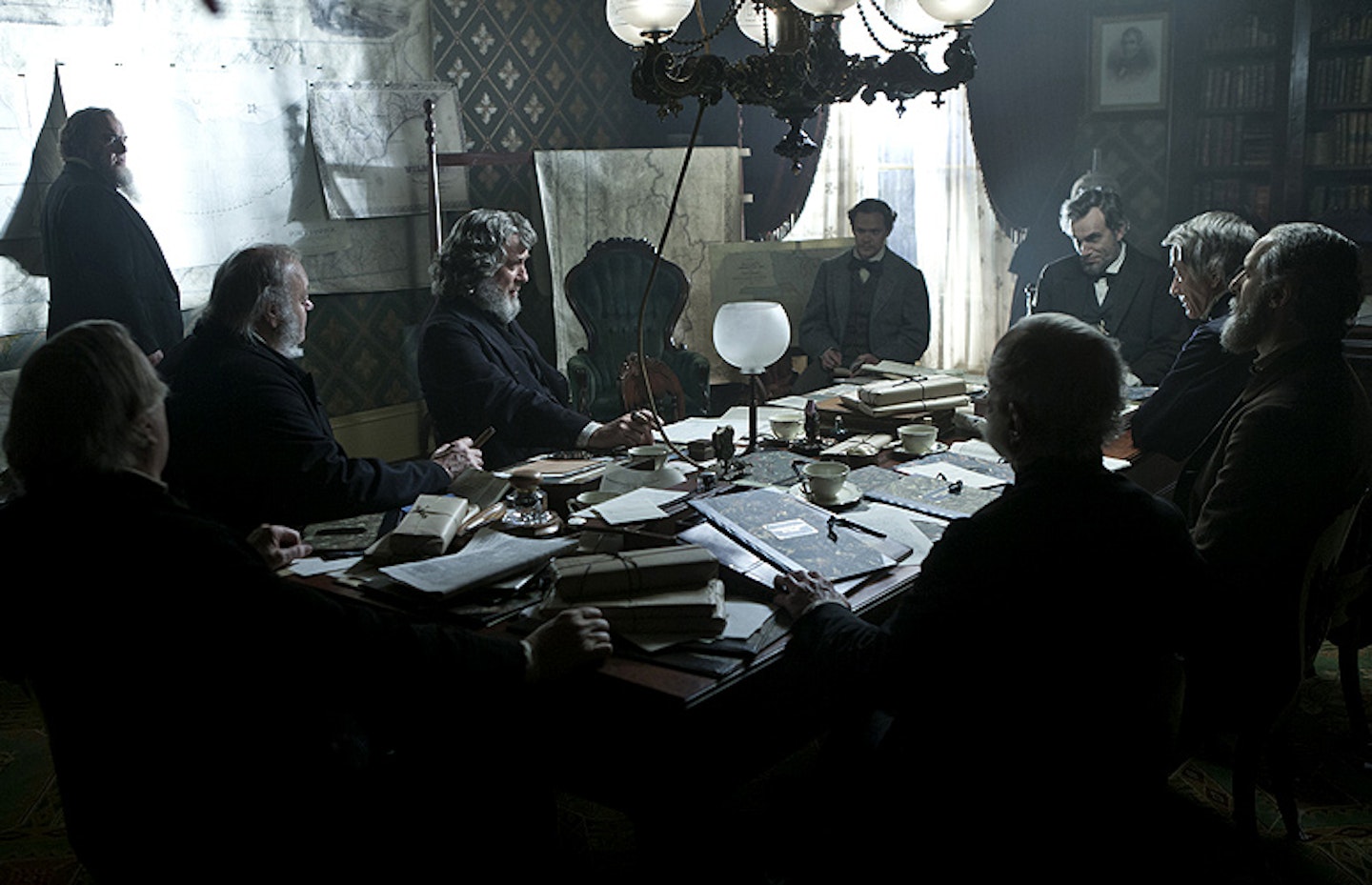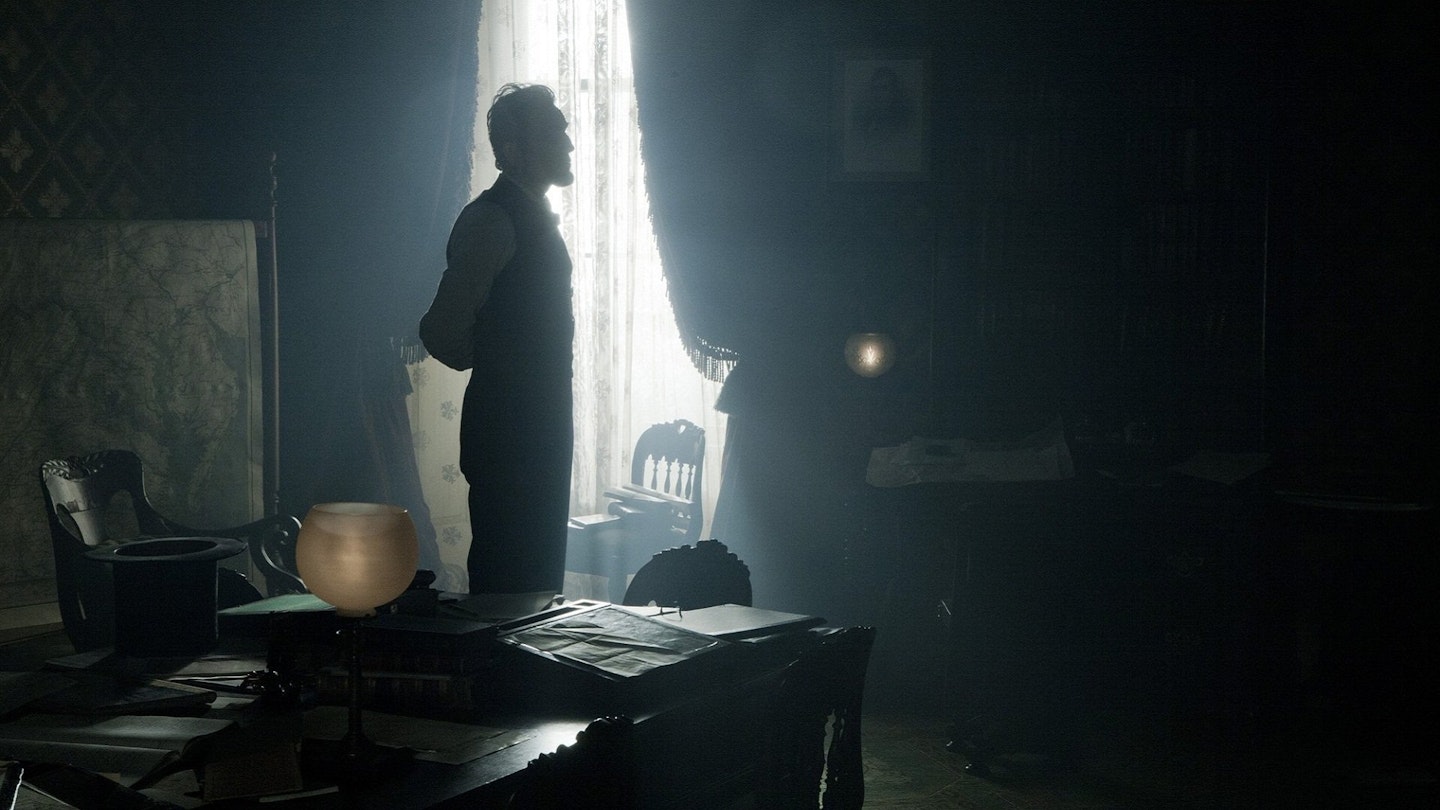Lincoln, like Zero Dark Thirty or The West Wing, doesn’t waste a whole lot of time on exposition before throwing you into its plot. That’s fine, assuming you’ve spent years in American history classes and/or recently read Team Of Rivals: The Political Genius Of Abraham Lincoln, the book that inspired Steven Spielberg’s film. But just in case that isn’t the case, here are a few pointers to help you through the film…

1 Lincoln was the 16th President of the United States, holding office from 1860 to 1865. His time in office was almost exactly concurrent with the American Civil War, which raged between the Northern states of the US – known as the Union – and the Southern States – or Confederacy – which seceded from the Union and set up their own government very shortly after Lincoln was elected. The Union troops wore blue and the Confederates grey, for the record, but both sides looked very dashing until they hit the muddy battlefields and things got bloody. - - - - - -
2 While the causes of the War were complex and manifold, for the purposes of watching the film let’s assume that the South wanted to keep slavery (and extend it into new territories and States as they were added to the US) and the North to abolish it (or at least curtail it so it would die out in time). That’s wildly over-simplified, there were many economic questions too and issues of states’ rights vs. federal power, but it’s only a two-and-a- bit hour film and honestly, if you’re into that you should really read some books. - - - - - -
3 The war was extremely bloody and bitter even by the standards of, er, wars: there were over 1 million casualties including over 600,000 soldier deaths (some estimates put it north of 800,000) – more than the US casualties in every war since added together. It was a war of attrition, with the South attempting to force their independence from the Union by making it too difficult to hold them in and the North (initially under a series of overly-timid and/or incompetent commanders) trying to retake that whole territory. By late 1864, however, the Union was under the (more competent) command of Ulysses S. Grant (Jared Harris) and looked certain to win the War on the battlefield. - - - - - -
4 So the film takes place during the very early days of 1865. Peace is looming and Lincoln, having been presented with the lemons of civil war directly after his first inauguration, is looking to make emancipation lemonade out of the whole sorry mess. Specifically, he wants to enshrine his wartime Emancipation Proclamation of 1863 in a 13th Amendment to the Constitution, which would end slavery in the United States forever. That very Amendment has passed the US Senate the year before, but to become law it needs to pass the House Of Representatives by a two-thirds majority as well – and that’s the central drive of the film. Lincoln needs to find that majority and pass that law. Yes, it’s all about passing a law. But if you’ve ever seen The West Wing, you’ll know that that can be exciting too. - - - - - -

7 So who are the players in this story? Lincoln himself had a background as, mostly, a self-educated lawyer who spent long periods riding the court circuit and hanging out with his fellows. His lawyerly side is most obvious onscreen during the scene where he discusses why the Emancipation Proclamation won't stand up to post-War scrutiny, which is a wonderfully circular piece of legal reasoning and a bravely complicated piece of screenwriting. A supremely likeable individual with a reputation for honesty but an oft-overlooked capacity for political manoeuvring, Lincoln liked to tell tall tales and shaggy-dog jokes to amuse those around him when things got tense – several examples in the film are straight out of the historical record. And before you ask yes, the slightly high-pitched voice accords with historical accounts of his speeches, if not the previous Hollywood versions, so no, there really isn't any possible basis to criticise Daniel Day-Lewis' performance. Seriously, just give it up. It's basically flawless. - - - - - -
8 Mary Todd Lincoln (Sally Field) is nowadays reckoned to have suffered from bipolar disorder, enduring dizzy highs and crashing lows of emotion, exacerbated by the tragic death of the Lincolns' 11 year-old son Willie in 1862. She was a controversial figure in her day: determined to maintain the dignity of the Presidency, she went on a personal shopping spree to buy the dresses she deemed necessary to her role, and then on an interiors binge to gussy up the faded White House (neither of these sprees was entirely unjustified, mind). Robert Lincoln (Joseph Gordon-Levitt) was her eldest son; their youngest, Tad (Gulliver McGrath), is the adorable pre-teen gambolling around the White House with his dad in the trailer. - - - - - -
9 There are some important figures in Lincoln's cabinet to watch out for. William H. Seward (David Strathairn) was a New York Senator and defeated Republican Presidential candidate turned Secretary Of State – think Hillary Clinton – and Lincoln's closest ally in government. An assassination attempt was made on him the night that Lincoln was shot; Seward (and his son, also critically wounded) survived, but tragically his wife and daughter fell ill during their long convalescence and died. Also worth noting is Edwin M. Stanton (Bruce McGill), the irascible Secretary Of War. Not in the cabinet but also of note are Republican party founder Francis Blair (Hal Holbrook), a stalwart of the more conservative (with a small "c") wing of the party and Thaddeus Stevens (Tommy Lee Jones), House of Representatives firebrand and vehement abolitionist who "lived on brandy & opium" according to one contemporary. - - - - - -
10 Don't worry! We haven't given much away here. We haven't said anything here about whether the Amendment passes, lest anyone think you can spoil 150-year-old history, nor about the Confederate peace delegation led by Alexander H. Stephens (Jackie Earle Haley), nor much about the family dramas of the Lincolns or those around them. We leave that to (former Empire editor) Steven Spielberg.
brightcove.createExperiences();
